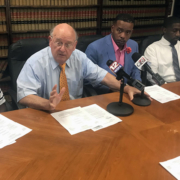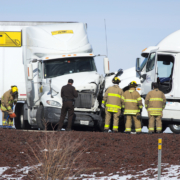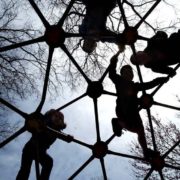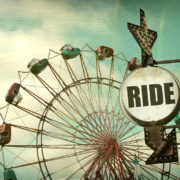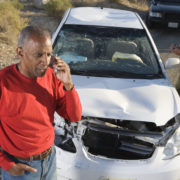Why Are Pedestrian Accidents Increasing in Alabama?
Walking is one of the healthiest ways to get from Point A to Point B—if you’re lucky enough to live in a walkable city, you may even be able to get by without owning a car. But even if you just walk for fun and exercise, you deserve to walk freely without worrying about a rogue driver hitting you. Unfortunately, that’s not how it is for Alabama pedestrians. Pedestrian accidents are on the rise and the fallout is devastating.
If you or someone you love has been hurt in a pedestrian accident, find out if you are entitled to compensation. Call McPhillips Shinbaum at 1-866-224-8664 to set up a time to talk to our team.
What the Data Says
The best source for accident statistics in Alabama is the Crash Facts booklet, an annual publication put out by the Alabama Department of Transportation. The most recent version covers 2020 data and includes a section specifically covering pedestrian accidents. In 2011, there were 741 pedestrian crashes resulting in 589 injuries and 84 deaths. How have those numbers changed over the years?
Let’s jump forward to 2019 since data from 2020 includes the pandemic when fewer cars were on the road. In 2019, there were over 900 pedestrian accidents. These collisions led to over 70 injuries and 114 deaths. These numbers reflect a 35% increase in fatalities and a 22% increase in total collisions. Not only are crashes on the rise, those crashes are becoming more and more deadly.
Even though crash numbers are deceivingly low in 2020 thanks to the pandemic, you might be surprised by fatality numbers. Even though crashes decreased significantly in 2020, fatalities remained high—there were 97 deaths in 2020.
How Drivers Can Cause Pedestrian Accidents
In many cases, drivers are to blame when pedestrian accidents occur. Distracted driving is a huge problem in Alabama and across the country, and pedestrians often pay the price. Drivers who are glancing down at their phones or completely engrossed in text messaging may not see a pedestrian as easily as they’d see a car in their path. By the time they notice—assuming that they notice at all—it may be too late to stop.
This is exacerbated by speeding, another common mistake made by drivers. When drivers are zipping down city streets, they don’t leave themselves enough time to come to a complete stop.
Drivers also have a problem yielding right-of-way to pedestrians. Even though pedestrians generally have the right-of-way in intersections and elsewhere, drivers often try to squeeze through rather than wait for pedestrians. This leads to preventable accidents.
Impaired driving is a significant contributing factor to pedestrian collisions in Alabama. Impaired drivers are less likely to see pedestrians, less able to respond appropriately when they do notice them, and less likely to have the motor skills needed to stop in time.
When Pedestrians Are to Blame
Although drivers may be to blame for the majority of pedestrian crashes in Alabama, it is important to acknowledge the role that pedestrians play. They have to be active participants in their own safety, rather than expecting cars to stop for them. Even if a car is in the wrong, being right isn’t worth being hit.
Jaywalking is one of the main ways pedestrians cause accidents. Drivers are far less likely to see jaywalkers than they are to see people crossing at intersections. This gives them minimal time to stop and dramatically increases the likelihood of an accident.
Some pedestrians also have a habit of ignoring walk and don’t walk signals. While drivers are technically supposed to stop to allow people to cross intersections, crossing on a don’t walk signal makes it much more likely you’ll get hit. It’s just an unnecessary risk to take.
Distracted walking is an issue much like distracted driving. Pedestrians should be cognizant of the drivers around them, what they’re doing, and their surroundings.
Injured in a Pedestrian Accident? Call McPhillips Shinbaum Today
If you or someone close to you has been hurt in a pedestrian crash, don’t wait any longer to talk to McPhillips Shinbaum. Our team is committed to helping you fight for full and fair compensation. Reach out online or call us at 1-866-224-8664 to schedule a consultation now.

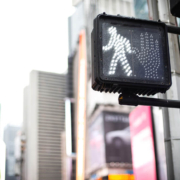 Why Are Pedestrian Accidents Increasing in Alabama?
Why Are Pedestrian Accidents Increasing in Alabama?
